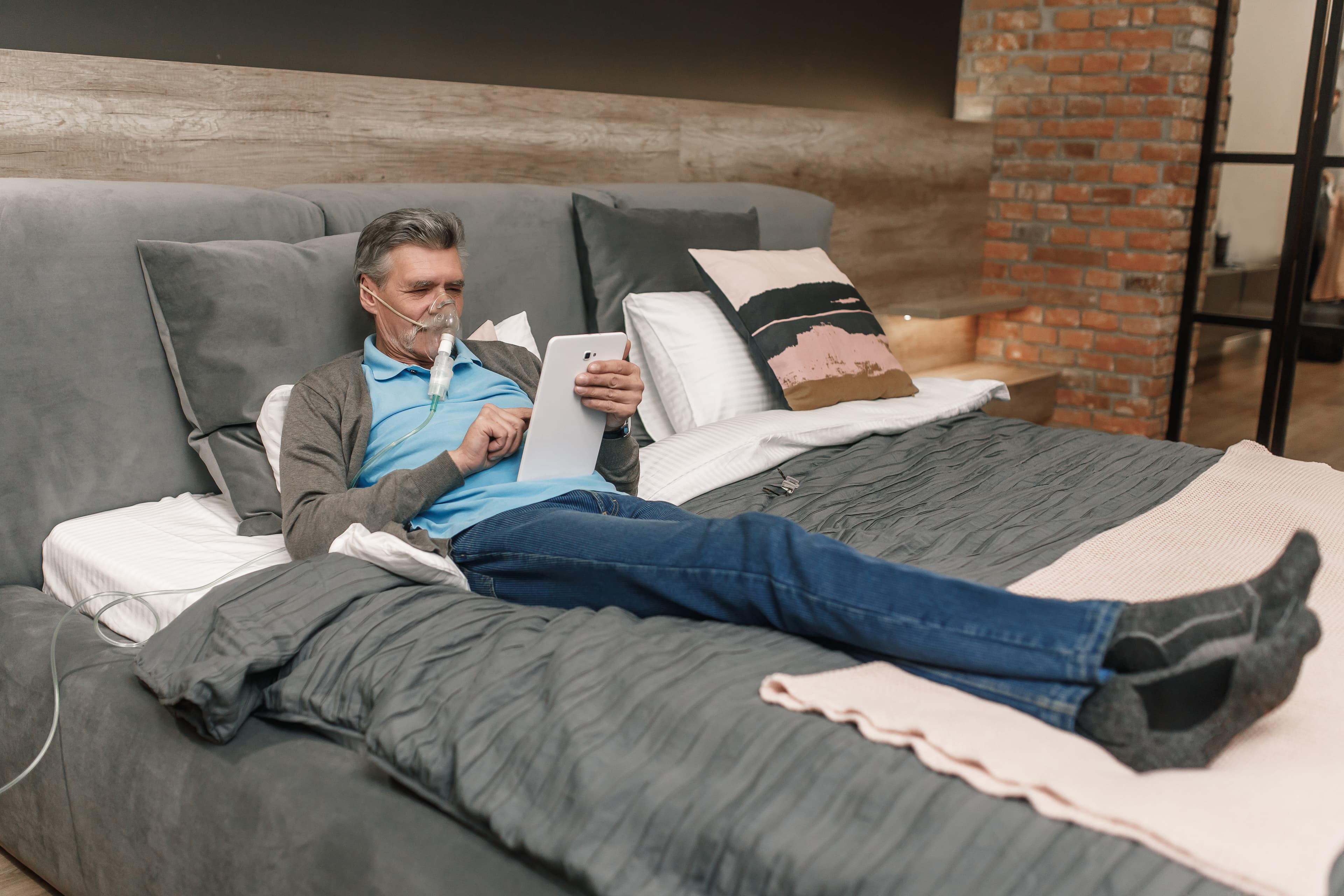
An oxygen concentrator is a device that helps you in need of medical assistance when you need extra oxygen. An oxygen concentrator uses air to get oxygen, as air contains 20% of the oxygen. The next step is to filter it and then it provides 90 to 95% oxygen.
It ensures to provision of a continuous supply of oxygen to people dealing with chronic respiratory conditions. In this article, we will explore that as important as this machine seems it is also important to know When to Use an Oxygen Concentrator at Home. So let us dive in to learn a little more about the need for oxygen concentrators.
An oxygen concentrator works by concentrating oxygen from the air and provides a higher concentration to a person. It filters and compresses air by separating oxygen from other gases. Oxygen concentrators generate oxygen on the spot, unlike oxygen cylinders that can be used continuously.
COPD is a condition in which a person faces constant breathing problems. The patient suffers from other things such as low oxygen levels due to damaged airways and lung tissue. People suffering from severe COPD can use home oxygen therapy to reduce symptoms like shortness of breath and to increase their overall oxygen level.
It is a disorder that can cause inflammation and can cause damage to lung tissue, which can affect the functionality of the lungs and oxygen absorption. Patients suffering from this condition can get help from an oxygen concentrator to get the required oxygen in their body.
Pulmonary fibrosis can cause thickness and stiffness in the lung tissues and can impact on lungs ability to absorb oxygen. As the condition progresses symptoms get worse too due to which the lung’s ability to absorb oxygen decreases and a person also suffers from breathing problems. At this time oxygen concentrator can help you provide adequate oxygen need and lessen the impact of symptoms.
It is a condition when you stop breathing or have no airflow while sleeping. So, a CPAP machine ensures that it keeps the airways open for the user so they keep receiving the oxygen they need. You can consult with healthcare professionals if you can use an oxygen concentrator alongside CPAP.
Heart failure can overall impact heart functionality which can impact oxygen delivery causing low oxygen levels in blood. At times like this oxygen therapy can help to provide the required need for oxygen.
Pneumonia can cause severe inflammation which can reduce and impact oxygen delivery in the lungs. During recovery, patients are mostly advised by healthcare professionals to get oxygen therapy at home.
Before deciding and going for oxygen concentration on your own, It is advised to first consult any health care professional in this way you can get the best advice based on your condition and get the right treatment.
Signs You May Need Supplemental Oxygen:
If you are facing symptoms like headaches, shortness of breath (even when you are not doing any activity ), fainting, or any pain in your chest or muscles then it might be a sign that you need it but first consult any healthcare professional near your area.
1. Pulse Oximetry
It is a device built to measure oxygen saturation levels. Its normal value should range from 95 to 100% if you are getting between 95 to 100% it means your oxygen level is fine but if your level keeps dropping between 90%, you may need to consult and get an oxygen concentrator.
2. Arterial Blood Gas (ABG) Test
An Arterial Blood Gas (ABG) Test is mostly advised to get a precise identification of oxygen and carbon dioxide levels in your blood. After the identification of your condition, your doctor may advise you to get home oxygen therapy.
Safety Precautions:
While using an oxygen concentrator at home it is advised to follow guidelines and precautions. Keep your oxygen concentrator away from fire or any electric source. It is advised not to use an extension to plug in the oxygen concentrator opt for alternative options that can reduce the risk of damaging the oxygen concentrator at home.
Maintenance and Care:
Regular maintenance is important for any machine to use for a longer time. Maintain a habit of cleaning filters. Make sure to read manufacturing guidelines before cleaning and replacing filters for the first time. A clean filter provides a good flow of oxygen and improves the efficiency of oxygen concentration.
Using an oxygen concentrator at home can significantly improve the health of individuals suffering from respiratory and cardiovascular conditions or those recovering from severe illnesses like COVID-19 or pneumonia. Before going for home oxygen therapy it is important to identify the symptoms and the reason behind them. Always consult with your healthcare provider to identify When to Use an Oxygen Concentrator at Home.
Can I use an oxygen concentrator without a prescription?
No, you cannot identify the symptoms and identify the reason behind them on your own. It is advised to consult a healthcare professional to properly treat your condition.
How many hours a day should I use my oxygen concentrator?
It completely depends on your medical condition for example some individual constantly needs oxygen while others may need it while performing any activity for example a person suffering from apnea may only need oxygen when they are asleep.
Can I travel with my oxygen concentrator?
Yes, you can. Portable oxygen concentrators (POCs) as from its name we can easily judge that it is something that can easily be transferred from one place to another. It is specifically designed for people who move from one place to another. They are compact and lightweight which makes it more ideal for people who travel a lot.
We offer 24/7 delivery of oxygen concentrators, CPAP/BiPAP machines, and hospital beds.
Emergency delivery available anytime
Quick setup and installation
Get professional advice and support.